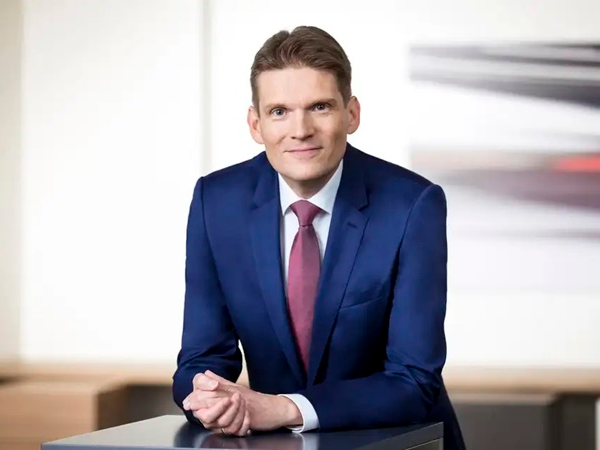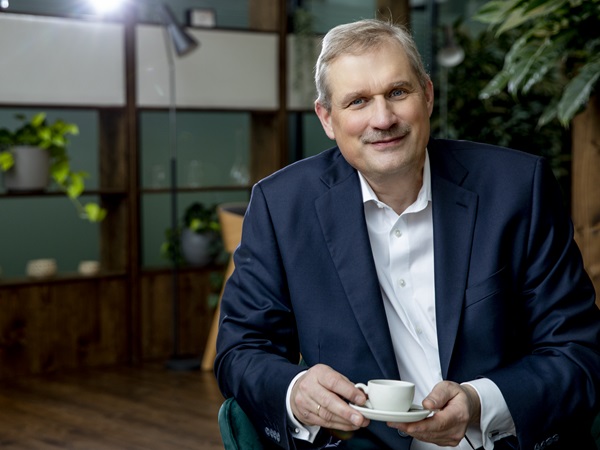Date: 22 March 2010
The solid results achieved during the first five months of the new fiscal year suggest that the rest of the year will develop quite positively. “We are beginning to leave the economic crisis behind us and will increase our sales by a double-digit percentage,” reported Professor Udo Ungeheuer, the Chairman of the Board of Management, at the annual results press briefing held in Mainz on March 19.
SCHOTT began manufacturing “Fiolax” special glass tubes for pharmaceutical packaging at its main site in Mainz as well in October 2009.
Almost all of the SCHOTT Group’s business units are currently reporting positive figures. The Home Tech division ranks among the units that are recording the highest growth. Here, SCHOTT is increasingly benefiting from the growing awareness of the environment among those who purchase household appliances. With “Ceran Hightrans eco”, the company is the world’s first manufacturer to offer a glass-ceramic cooktop panel that can be produced without using the toxic heavy metals arsenic and antimony during the manufacturing process. A major order to provide the glazing for the Chinese state railway’s high-speed trains and increased demand for fireplace viewing panels have also helped to ensure high capacity utilization.
The business with electronic components, especially for home appliances, cell phones and the automotive industry, is also developing quite positively. Here, Asia is clearly the main growth region. In the United States, the acquisition of SCHOTT Elecpac only a year ago has also contributed substantially to the further expansion of this business.
In the field of solar, Concentrated Solar Power with its receivers for solar thermal parabolic trough power plants is also showing significant dynamic growth. As both the market and technology leader, SCHOTT is an important partner in numerous power plant projects all over the Mediterranean region and in the United States. With respect to the area of photovoltaics, Prof. Ungeheuer emphasized that the announcement that there would be a dramatic reduction in the feed-in tariff effective July 1, 2010, has left the market feeling extremely insecure. “Thanks to its high-quality modules that continue to deliver far more than 90 percent of their rated output, even after 25 years, SCHOTT Solar is well-prepared to cope with the new situation,” he added. Nevertheless, SCHOTT will continue to appeal to politicians in the hope that they will show greater understanding for the situation of the German photovoltaic industry, particularly with respect to cheap competition from Asia.
The pharmaceutical packaging business continues to show a stable development. Even during the economic crisis, SCHOTT succeeded in achieving increased sales with its ampoules, vials, syringes and cartridges, due in part to the acquisition of two pharmaceutical packaging companies based in Argentina. Preparations to set up manufacturing of ampoules and vials in Russia are currently underway. With this measure, SCHOTT will be seeking to extend its leading position in the area of high-quality products in this growth market even further.
According to Professor Ungeheuer, the two business fields flat glasses for household appliances and glasses for optical applications still have “plenty of room to grow”. Here, too, he expressed his optimism that these areas will be able to report a significant increase in sales by the end of the fiscal year in September 2010.
To secure its position as one of the leading technology groups in the area of special glass products and other high-tech materials, SCHOTT will again be investing heavily in fixed assets during its current fiscal year 2009/2010. Plans call for the roughly 150 million euros to be invested mainly in the areas of Pharmaceutical Systems and Solar.
Steering in the opposite direction helped cushion the effects of the economic crisis in fiscal year 2008/2009
The results of the global financial and economic crisis had a significant effect on the activities of SCHOTT Group as well during the fiscal year 2008/2009. Considerable declines in orders from customers in the automotive, electronics and semiconductor industries and high competitive pressure in the area of photovoltaics were partly offset by stable business in the area of pharmaceutical packaging and receivers for solar thermal parabolic trough power plants. The fact that the company was able to cushion the effects of the crisis somewhat can be largely attributed to the strategic efforts that were made to steer in the opposite direction at a very early stage, but also the extremely strong dedication of its employees. “Short-time work, cost reductions and the voluntary decisions made by employees not to accept bonuses were all important factors in limiting damages,” Professor Ungeheuer emphasized during the press briefing.
Nevertheless, the company still took advantage of opportunities to expand during its fiscal year 2008/2009. For example, SCHOTT acquired one of the world’s leading manufacturers of components for electronic housings in the United States and two companies from Argentina that manufacture pharmaceutical packaging, in addition to acquiring the remaining shares in the photovoltaic company WACKER SCHOTT Solar. Furthermore, new manufacturing facilities were set up and put into operation. These included a production line for prefillable syringes and the opening of a new manufacturing plant for solar receivers and photovoltaic modules in the United States, a new facility for fiber optic products located in Mexico, and a new production facility for pharmaceutical tubing in Mainz.
For the past fiscal year, SCHOTT Group’s sales increased by 3% to 2.261 billion euros (2007/2008: 2.200 billion). This increase can be attributed for the most part to the inclusion of the Tokyo-based Moritex Corp. in the consolidated financial statements for the first time ever and increased sales of solar products. Europe remains the most important region for SCHOTT with a 58% share in sales, followed by Asia (19%) and North America (18%). Due to the significant declines in orders from important groups of customers and non-recurring restructuring expenses, results from operating activities (EBIT) amounted to a loss of 22 million euros. 216 million euros were invested in fixed assets, the majority of which went towards setting up solar manufacturing in the United States and Germany. The number of employees who work for the group remained stable at 17,400 as of balance sheet date.







Add new comment